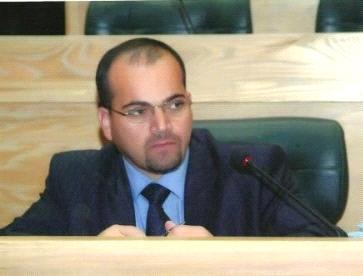Ammon News - AMMONNEWS - The parliamentary committee investigating allegations of corruption in the Socio-Economic Transformation Plan (SETP) on Monday elected its president and rapporteur.
According to a Lower House statement sent to The Jordan Times yesterday, the panel elected by acclamation deputies Mefleh Ruheimi (Jerash) and Abdul Rahman Hanaqtah (Tafileh) as its president and rapporteur.
On January 19, the Lower House tasked its Permanent Bureau with forming a nine-member committee to probe the SETP’s finances upon a majority vote.
During earlier deliberations on the government’s policy statement, several deputies had expressed doubts about the SETP, charging that it was the main cause of the country’s economic and social problems.
Some others alleged that the 2001-2004 SETP had contributed to “dismantling the country’s social structure and its economic stability”, charging that the programme’s only results were unprecedented increases in the budget deficit and public debt.
Others went further than that, charging that “mismanagement” of SETP by former minister of planning and international cooperation Bassem Awadallah had turned it into a “big failure”.
Ruheimi was the president of a similar investigation panel into SETP that was formed during the 14th Parliament in 2005.
The controversial SETP was launched in November 2001 upon Royal directives with the goal of accelerating the pace of social and economic reforms and raising the quality of citizens’ living standards.
Also yesterday, the special committee looking into the withdrawal of national numbers from Jordanians of Palestinian origin held its first meeting and elected MPs Ghazi Misharbash (Amman, 3rd District) and Yihya Saud (Amman, 2nd District) as its president and rapporteur, the statement said.
During last week’s House session, several deputies argued that hundreds of Jordanians of Palestinian origin were facing great difficulties as a result of the “arbitrary” withdrawal of their national numbers by authorities, calling on the government to settle the issue and end their suffering.
In addition, members of the House Energy and Mineral Resources Committee held a “brainstorming” session with several experts yesterday and discussed the country’s projected nuclear programme, the statement said.
Head of the panel MP Khalaf Yassin Zyoud (Zarqa, 3rd District), indicated that Jordan has several energy alternatives that are “cheaper and safer” than atomic energy, adding that before embarking on any nuclear programme, the Kingdom should utilise all its alternative energy resources such as oil shale and natural gas.
Also on Monday, the House investigative committee examining tenders floated by the Ministry of Public Works and Housing discussed the construction of houses for impoverished families across the Kingdom under a Royal initiative, according to the statement.
On January 26, 21 deputies submitted a memorandum to the House speaker’s office, requesting an investigation into the construction of the houses built under the initiative.
At the time, signatories of the memorandum charged that the money spent on these housing units was “much higher than the actual cost” and that supervisors and contractors of the projects had made “fortunes” out of the project.
Also yesterday, the parliamentary panel investigating illegalities in a previous government’s decision to allow convicted business tycoon Khalid Shahin to travel abroad for treatment discussed its findings in the case with several concerned parties.
Head of the panel, Deputy Saleh Lozi (Amman, 5th District), was quoted in the House statement as saying that members of the committee would continue hearing testimonies of eyewitnesses in the case before making its final report.
Shahin, who was serving a three-year term in prison for bribery and corruption in a case related to the Jordan Petroleum Refinery Company expansion project, was allowed to leave the country in February last year on the basis of a joint medical report signed by doctors from the private and public sectors stating that his obesity-related health condition could not be treated in Jordan.
Moreover, the House committee investigating allegations of corruption in the privatisation of the potash company listened yesterday to the testimonies of several eyewitnesses in the case, according to the statement.
The president of the committee, Irbid 4th District Deputy Ahmad Shaqran, pointed out that members of the panel had questioned several former ministers who approved the privatisation of the mining company, adding that the committee would start preparing a “comprehensive and detailed” report about the case next week, the statement said.
* Jordan Times
